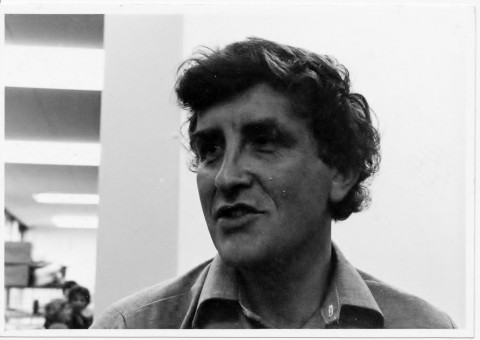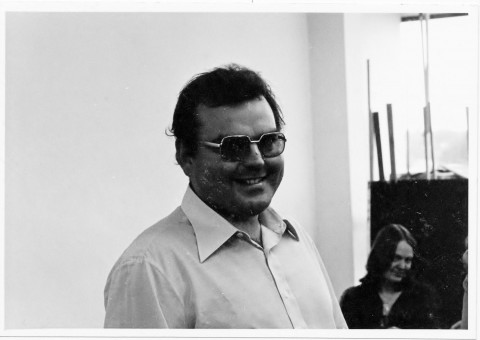
Photo by Martin Fenton, no reproduction without permission. These audio tapes are from Radio Studio 3 at Pebble Mill.
When I joined the BBC in Broad street as a Studio Manager in 1963 after about 3 months training in London, one of my first experiences was as Spot Effects S.M on The Archers. Tony Shryane -Producer- sat at the mixing desk, controlling the programme levels. There was a Studio Manager playing in Sound effects off 78rpm records and also from from recorded tapes- recorded originally on 5″ full track tapes @ 7.5″/sec. on an EMI Midget battery powered tape machine. These tapes were edited and compiled onto 10.5″ dia.tape reels of which at that time there were about 2 dozen. These were catalogued originally in a box file but later on fullscap sheets in a spring back folder.
Within a few months I moved on from pouring cups of ‘tea’, opening and closing doors etc to become the Gram and tape S.M. Agriculture was as ever becoming more developed and this meant more mechanisation and more recordings required. F.M radio was expanding and quality sound effects were also required to replace some of the original 78 rpm recordings.
Another S.M joined the Archers Team-Peter Belham- and between the two of us we increased the Tape library for the programme vastly ,and were recording in Stereo, looking to the future for not only The Archers but Birmingham Radio Drama output. This library of effects moved to Studio 3 at Pebble Mill, along with a Mini Archive of significant Archers episodes. Before this time Tony Shryane had asked me to take over at the Mixing Desk. Peter, was grams SM but also mixed from time to time but was also Mixing Radio Drama. We tended to swop roles back and forth as needed and I was quite often Grams S.M. when Peter was mixing a Radio Play. On Tony Shryanes retirement I felt it was time to move on from The Archers. Some years after both Peter and I had retired Mark Decker moved the effects library to the Mail Box and began the process of transferring it to C.D before his untimely death from cancer.
John Pierce


